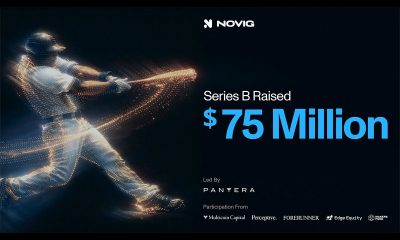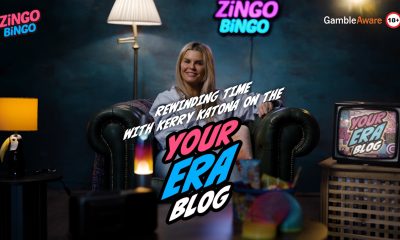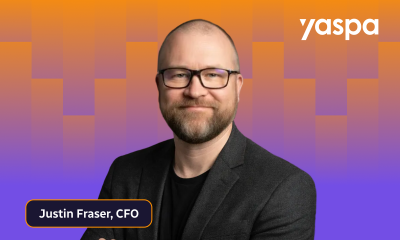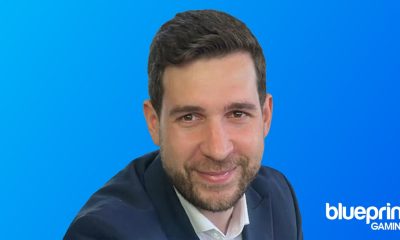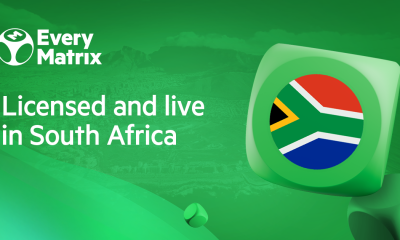Industry News
LAN Parties: Revival and Evolution in 2023
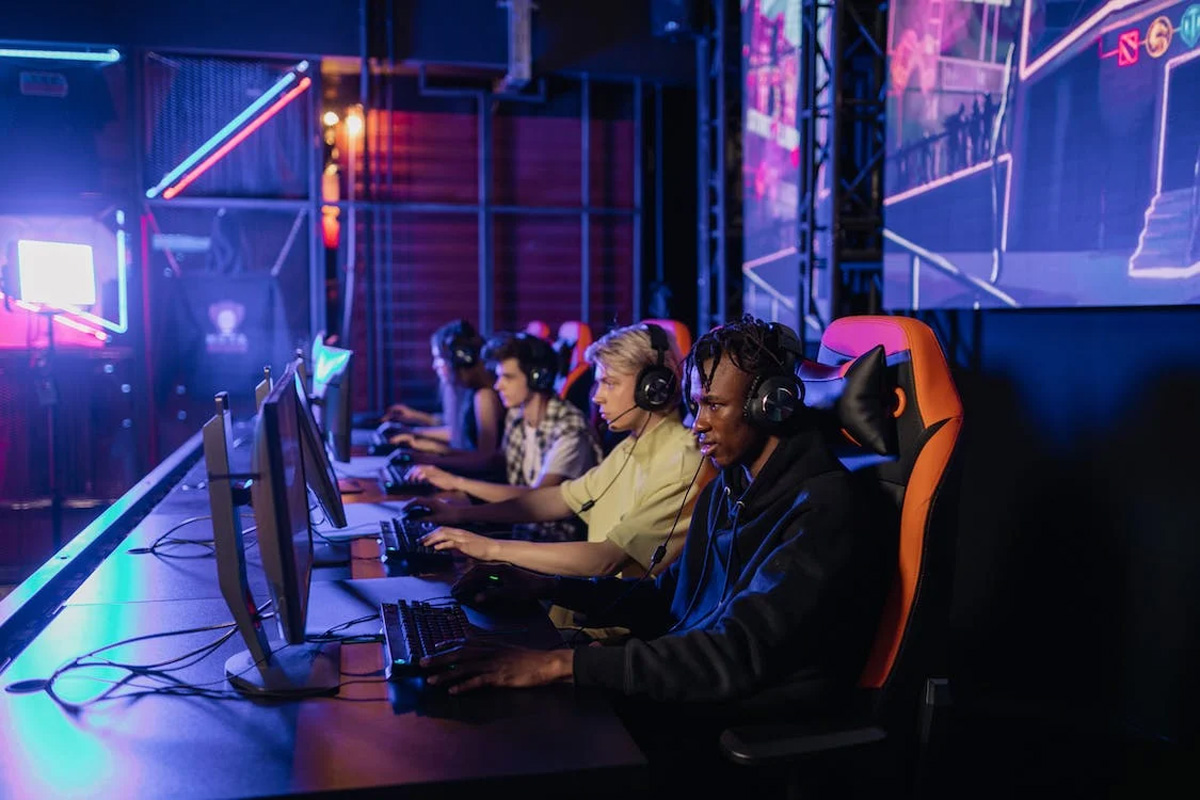
In the early 2000’s, LAN (Local Area Network) parties made up a large part of what some call the golden age of gaming. But as Wifi connections became stronger and cheaper, multiplayer gaming moved online, and LAN parties took a step back from the limelight.
Even though they may seem extinct to some, there’s still a strong LAN scene. With Insomnia the Gaming Festival taking place from the 7th to the 10th of September, domain and hosting experts, and event guest, Fasthosts, wanted to explore the current state of LAN parties in 2023, rounding up some of the biggest events taking place worldwide.
Originating in the 70s, it wasn’t until the turn of the millennium that LAN parties became the driving social gatherings of the gamer community. It was common to see teens transferring their heavy setups to friends’ houses to revel in hours worth of gameplay in bunker-like basements and dated living rooms. LAN parties were the first true form of multiplayer gaming and involved each player to BYOC (Bring our Own Computer), and gather together in the same physical location and connect their computers or consoles to play offline LAN-compatible games.
Nowadays, most game servers no longer support LAN connections. Nonetheless, informal small “friendly” events take place across the world alongside larger tournaments. Interestingly, they have witnessed a shift by partially merging with the competitive world of eSports. Many tournaments recognise the appeal and importance of keeping their novelty alive, and have incorporated social gaming, and BYOC areas where participants can enjoy more casual playing sessions with friends or acquaintances.
With their rich cultural history and nostalgia, they are still enjoyed by avid gamers worldwide and bridge the gap between the past and present world of gaming. In fact, there are plenty of events that promote LAN style gaming and casual play – here are some of the largest events that are reviving the classic spirit of gaming:
Insomnia the Gaming Festival (UK)
Insomnia is the biggest gaming festival in the UK. Each year it hosts eSport competitions, meet and greets, cosplay, and gaming-related events. Insomnia are hosting their i7i LAN party on the 10/09 where you can compete in tournaments or friendly battles.
QuakeCon (USA)
QuakeCon is an annual video game convention that takes place in Texas. It is primarily centred around id software’s game, especially the Quake series. It will be the first in-person event since 2019, and it is said that this year’s convention will bring greater emphasis to the BYOC side of the event.
LanTrek (Finland)
LanTrek is an annual gaming event that started in 2001. Aimed at all young people interested in computers, consoles, board games and gaming, it features competitive tournaments, exhibition areas, and a BYOC option where individuals can enjoy casual gaming with their friends.
The Gathering (Norway)
The gathering takes place in April of each year in the Viking Ship in Hamar. As Norway’s biggest computing event, they celebrate Easter with games, eSport competition, lectures, and concerts. It is also run entirely by volunteers and non-profit organisations.
Dreamhack (Worldwide)
Dreamhack is one of the largest LAN party and gaming festivals globally. It started in Sweden but soon popped up in various other locations, including the US, France, India, and Spain. Each event combines eSports, LAN gaming, concerts, meet and greets and more.
Gamers Assembly (France)
Unlike others on this list, Gamers Assembly is solely a LAN gaming event. Organised by the FutuoLAN association it attracts thousands of players each year looking to take part in the tournaments from popular eSport titles to more niche selections.
Assembly (Finland)
The biggest gaming convention in Finland, it attracts an average of 30,000 participants every event. Centred around gaming, eSports and digital culture, for the summer 23 edition, Assembly announced their largest ever LAN area to date.
PAX (USA & Australia)
PAX takes place in numerous locations around the US and Australia. Although primarily a gaming event it offers a BYOC/community playing option alongside other fun features such as talks, game demos, concerts, and tournaments.
Industry News
Novig Raises $75M Series B to Build a Trader-First Sports Prediction Market
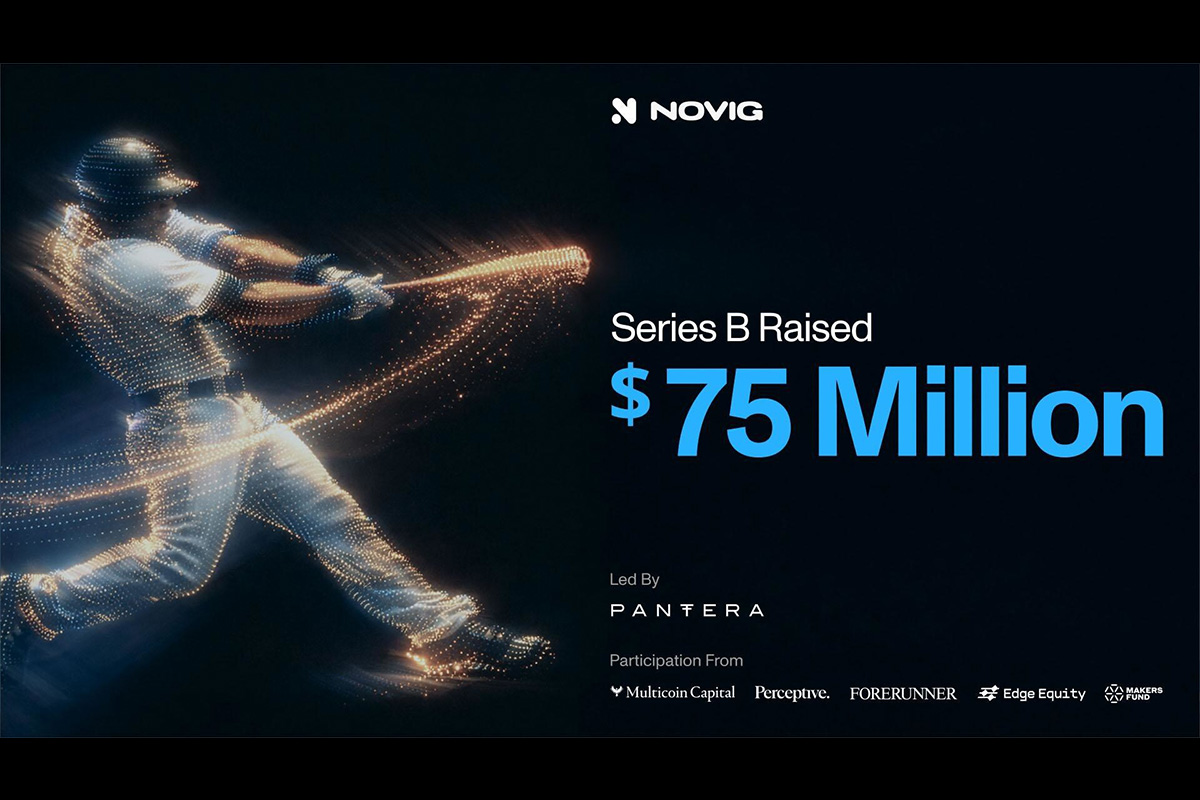
Novig, the fastest growing sports trading platform in America, announced the close of a $75 million Series B round led by Pantera Capital, with participation from Multicoin Capital, Makers Fund, Edge Equity, and existing investors Forerunner, Perceptive Ventures, and NFX. The round brings Novig’s total capital raised to more than $105 million.
The funding follows a period of growth for the platform, which reported a 10x increase in trading volume during 2025. Novig’s annualized trading volume currently exceeds $4 billion.
Although sports account for the majority of activity on most prediction market platforms, those products are not built with sports traders in mind. Novig, by contrast, is built for sports fans, delivering a fair, transparent, and commission-free trading experience.
Since launch, the platform has rapidly emerged as the leading sports trading platform in the US, proving strong demand for a trader-first alternative to traditional sportsbooks. Novig has officially submitted its application to the Commodity Futures Trading Commission (CFTC) to become a licensed Designated Contract Market (DCM), a critical milestone in its transition toward becoming a federally regulated exchange available in all 50 states.
Unlike sportsbooks that operate an against-the-house model, Novig operates a commission-free, peer-to-peer exchange where traders compete against one another on a level playing field. By eliminating the hidden “vig,” unfair odds, and punitive limits on winning players, Novig has built the industry’s most equitable sports prediction platform.
“Our mission is to democratize and financialize sports markets, and we’re proud of the fact that Novig users are 10 times more likely to win than on traditional sportsbooks,” said Jacob Fortinsky, Co-Founder and CEO of Novig.
“We chose to partner with the best crypto venture firms in the world to further accelerate our plans to make Novig the most efficient and liquid sports prediction market in the world. Others are using prediction market technology to financialize new markets with unproven demand. We leverage it to fix broken markets where demand already exists.”
“Novig is proving that prediction markets can fundamentally reshape sports betting by removing the exploitative middleman,” said Paul Veradittakit, Managing Partner at Pantera Capital.
“Their peer-to-peer exchange delivers what traditional sportsbooks can’t: better odds, fairer market structure, and alignment between platform success and user profitability. When 23% of users are profitable compared to 2% on traditional platforms, it’s clear this is a foundational change to the industry. We’re excited to lead this round and support Jacob, Kelechi, and the team as they build a sports prediction market that actually puts bettors first.”
“Novig combines the cultural heartbeat of sports with the transparency and efficiency of prediction markets. Most prediction market volume today is on sports, yet those platforms weren’t built with sports or sports bettors in mind. We are delivering a better exchange that is built by sports traders, for sports traders,” said Co-Founder and CTO Kelechi Ukah.
The new capital accelerates Novig’s next phase of growth, including onboarding more institutional liquidity. Novig will utilize the investment to deepen product innovation and growth loops, launching first-of-its-kind functionality that combines the best innovation of financial markets with the excitement of live sports.
To support its next phase of growth, Novig has expanded its team to more than 50 personnel, including operators, engineers, and traders focused on developing the platform’s prediction market infrastructure and transparency features.
The post Novig Raises $75M Series B to Build a Trader-First Sports Prediction Market appeared first on Americas iGaming & Sports Betting News.
Gaming Laboratories International
GLI Promotes Patrick Cottingham to Director of Client Services, North America

Gaming Laboratories International (GLI) has promoted Patrick Cottingham to Director of Client Services, North America. Previously, he served as Senior Manager of Client Services. Prior to commencing his career as an engineer with GLI, he served with the US Air Force.
Cottingham’s dedication to his clients was clearly evident both inside and outside of GLI. He transitioned to the Client Services team where he progressed and built a team laser focused on providing the very best customer service where his and his team’s clients have benefited from his engineering and gaming experience.
Ian Hughes, GLI Chief Revenue Officer, said: “We are thrilled to announce Patrick’s well-deserved promotion to Director of Client Services for North America. Patrick leads a team of dedicated and committed client services representatives who ensure our clients receive the best service during their compliance journey with GLI.”
The post GLI Promotes Patrick Cottingham to Director of Client Services, North America appeared first on Americas iGaming & Sports Betting News.
Blueprintx
Zingo Bingo Launches “Your Era” Nostalgia Series Featuring Kerry Katona and Pat Sharp
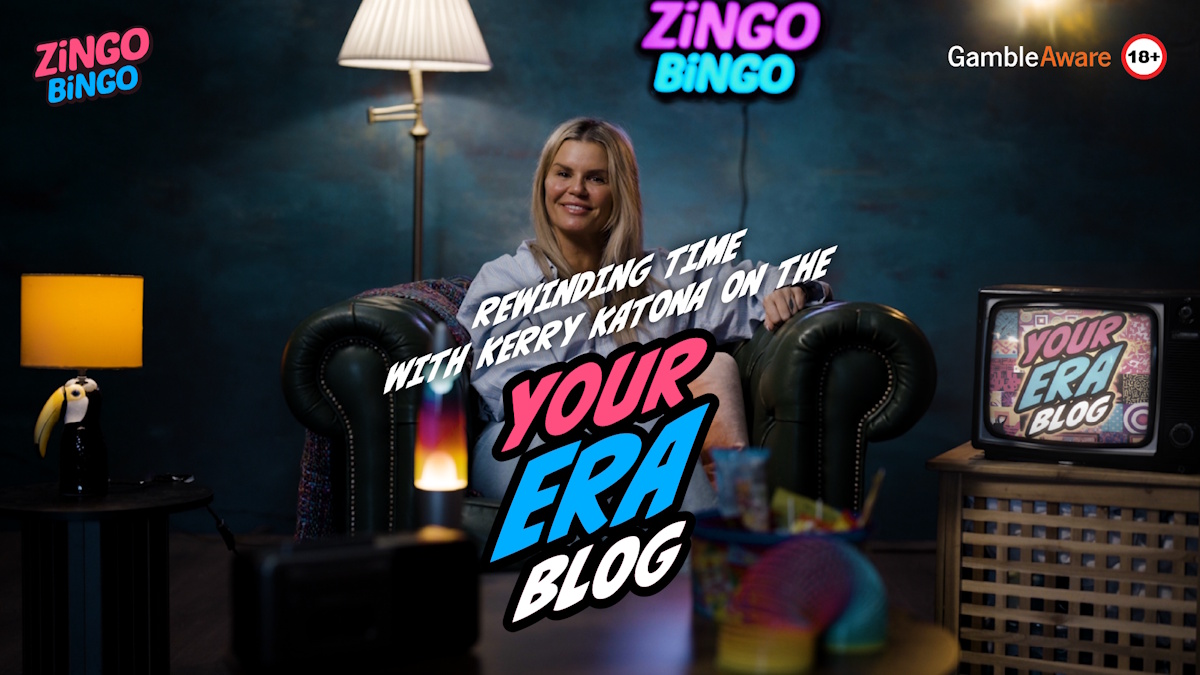
Zingo Bingo Launches “Your Era” – A Social-First Nostalgia Series for 2026
Zingo Bingo has officially unveiled Your Era, a new short-form social media content series celebrating iconic throwbacks, shared nostalgia and the cultural moments that defined generations. The series launches in February 2026 and will roll out weekly across TikTok, Instagram, Facebook and YouTube.
Designed to strengthen Zingo Bingo’s identity as a home of nostalgic fun, Your Era focuses on authentic conversation rather than traditional promotional content. The format highlights music, fashion, technology and pop culture milestones that shaped each guest’s personal journey.
Kerry Katona and Pat Sharp Headline Series One
The first confirmed guests include Kerry Katona, singer and media personality best known from Atomic Kitten, and Pat Sharp, the iconic radio and TV presenter associated with classic UK entertainment shows. Additional celebrity names will be revealed throughout the year.
Each episode features five themed nostalgia segments crafted to spark memories, conversation and emotional connections among viewers.
What to Expect from “Your Era”
Every guest takes part in recurring throwback features designed to boost engagement and relatability:
- The Memory Bag – Guests reveal five nostalgic items and share the stories behind them
- Flashback Files – A rapid-fire interview covering music, fashion, tech and cultural trends
- Mixtape Memories – Guests curate throwback tracks for the official Your Era playlist
- Taste of the Past – Sampling retro sweets and snacks while rating nostalgia levels
- Yesterday’s News – A humorous headline-guessing game using real throwback media stories
The series aims to tap into the growing popularity of nostalgia-driven digital content while positioning Zingo Bingo as a community-led entertainment brand.
Built by Kinetic Digital and Blueprintx
Your Era has been developed by Zingo Bingo’s operators, Kinetic Digital, in collaboration with long-term creative partner Blueprintx. Blueprintx has previously supported digital and television campaigns for Kinetic Digital brands including Prime Casino and Slingo.
The production strategy prioritises shareable, short-form content optimised for social discovery and influencer amplification, with episodes distributed across dedicated platform pages as well as guest channels.
A Strategic Play for Community Engagement
Jack Watson, Brand Manager at Zingo Bingo, said the series reflects the brand’s commitment to fun, familiarity and connection.
“Your Era is about celebrating the music we replayed, the fads we cringe at and the memories that still make us smile. It’s designed to bring people together through shared nostalgia while reminding audiences that bingo is about enjoying those moments collectively.”
Series one will feature six guests throughout 2026, with new weekly segments designed to drive audience engagement and repeat viewership.
The post Zingo Bingo Launches “Your Era” Nostalgia Series Featuring Kerry Katona and Pat Sharp appeared first on Eastern European Gaming | Global iGaming & Tech Intelligence Hub.
-

 Latest News6 days ago
Latest News6 days agoTRUEiGTECH Unveils Enterprise-Grade Prediction Market Platform for Operators
-

 Canada7 days ago
Canada7 days agoRivalry Corp. Announces Significant Reduction in Operations and Evaluation of Strategic Alternatives
-

 Acquisitions/Merger7 days ago
Acquisitions/Merger7 days agoBoonuspart Acquires Kasiino-boonus to Strengthen its Position in the Estonian iGaming Market
-

 Firecracker Frenzy™ Money Toad™7 days ago
Firecracker Frenzy™ Money Toad™7 days agoAncient fortune explodes to life in Greentube’s Firecracker Frenzy™: Money Toad™
-

 Blueprint Gaming4 days ago
Blueprint Gaming4 days agoBlueprint Gaming unleashes Frankenstein’s Fortune blending dynamic modifiers with multi-path bonus offering
-

 Compliance Updates6 days ago
Compliance Updates6 days agoHow to Apply for a Finnish iGaming License: Gaming in Finland Webinar on Application Steps and Technical Standards
-

 Big Daddy Gaming6 days ago
Big Daddy Gaming6 days agoBig Daddy Gaming® Expands European Footprint After MGA Licence Approval
-

 Africa7 days ago
Africa7 days agoEveryMatrix gains South Africa licence with customer launch pipeline on the rise



